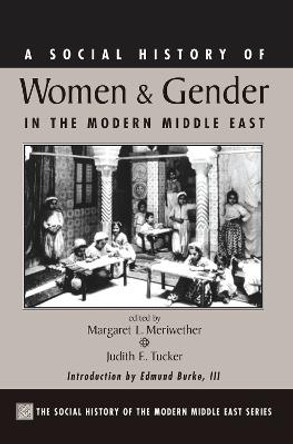Description
The history of the Middle Eastern family presents as many questions as there are currently answers. Who lived together in the household? Who married whom and for how long? Who got a piece of the patrimonial pie? These are the questions that Margaret Meriwether investigates in this groundbreaking study of family life among the upper classes of the Ottoman Empire in the pre-modern and early modern period.
Meriwether recreates Aleppo family life over time from records kept by the Islamic religious courts that held jurisdiction over all matters of family law and property transactions. From this research, she asserts that the stereotype of the large, patriarchal patrilineal family rarely existed in reality. Instead, Aleppo's notables organized their families in a great diversity of ways, despite the fact that they were all members of the same social class with widely shared cultural values, acting under the same system of family law. She concludes that this had important implications for gender relations and demonstrates that it gave women more authority and greater autonomy than is usually acknowledged.
"Margaret Meriwether has written an excellent study of family life in Ottoman Aleppo... Her book will be of great value to those interested in social studies in general, women's history, gender studies, and Middle Eastern studies in particular." -- Amira Sonbol, author of Women, the Family, and Divorce Laws in Islamic History
About the Author
Margaret L. Meriwether is Professor of History at Denison University in Granville, Ohio, where she teaches courses on Islamic and Middle Eastern history.
Book Information
ISBN 9780292752245
Author Margaret L. Meriwether
Format Paperback
Page Count 288
Imprint University of Texas Press
Publisher University of Texas Press
Weight(grams) 367g
Dimensions(mm) 229mm * 152mm * 23mm









